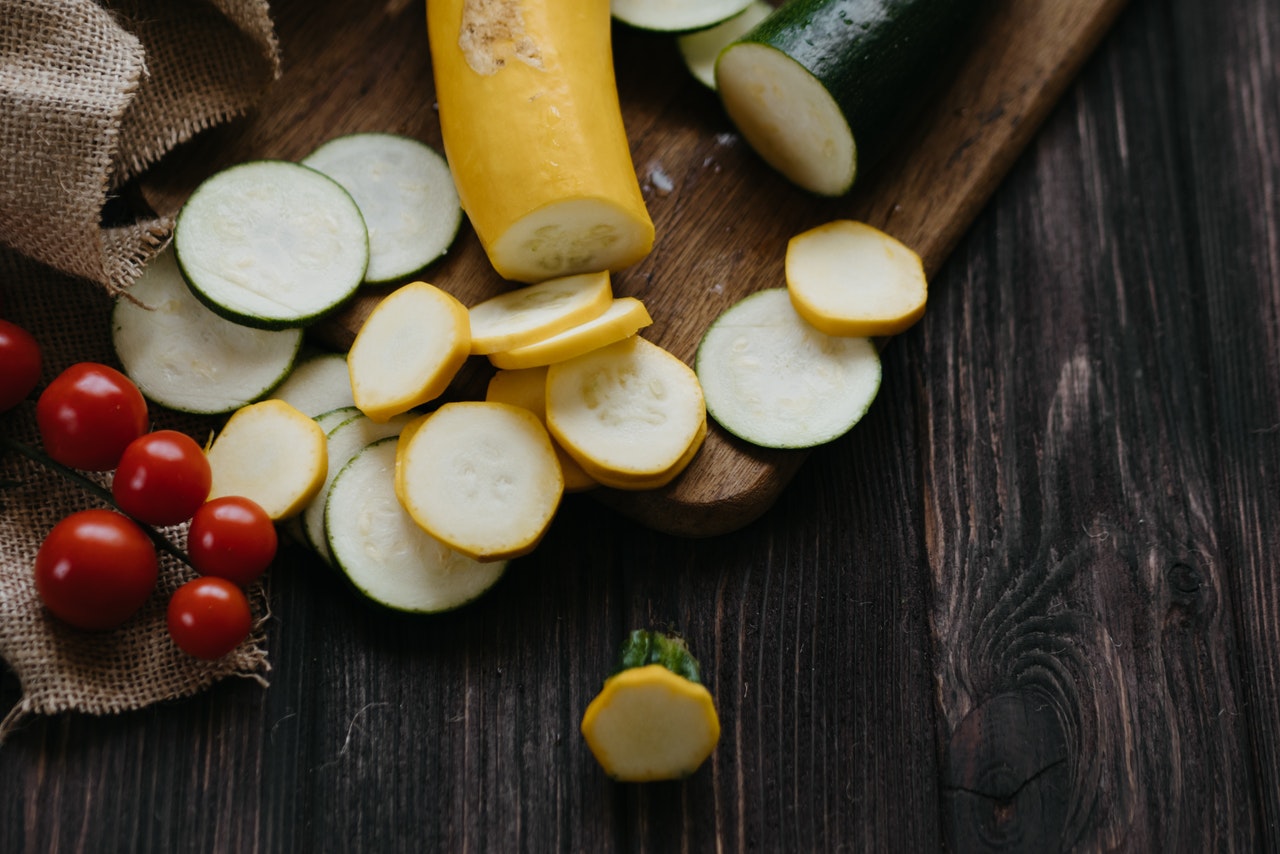-
 Crowning Touch ClinicsCT @ The Ranch
Crowning Touch ClinicsCT @ The Ranch
12612 Pommel Circle
Elbert, CO 80106
Crowning Touch Healing Center
18425 Pony Express Dr. 201B
Parker, CO 80134
Mobile Services: Farm and Ranch Calls
Available, contact for details.719-401-2883 -
Latest Articles:
- • Energy-Saving and Safety Tips for Winter Proofing Your Home •
- • Winter Wellness: Mental Health Tips for Beating the Winter Blues •
- • 10 Cozy Winter Activities to Enjoy Indoors •
Health WellNews
Fall’s Best Comfort Food
One of the best things about the approach of Fall is the cooler temperatures that bring family recipes filled with warm comfort food. It’s no wonder Fall is often described as soup season. Hearty and warm soups filled with fall produce and rich broth bring warmth and comfort to family tables no matter where you live.

One of the most recognizable Fall vegetables must be pumpkin. But pumpkins aren’t just cute Halloween decorations. A quick search of the Internet will deliver dozens of pumpkin soup recipes right to your inbox. Here’s a favorite you may not have tried before: Pumpkin Soup with Coconut Milk. You can vary this soup recipe by choosing butternut squash as well and the addition of the coconut milk instead of heavy cream won’t be noticeable to most. Finishing it off with a healthy spoonful of plain Greek yogurt, chopped parsley and a drizzle of high-quality olive oil will have you going back for seconds and thirds! Making a double batch also leaves you extra to freeze and warm up later when time is short.
The prep time for this soup is approximately 30 minutes and the cook time is one hour and 35 minutes. This recipe will serve 8. And the roasting of the vegetables gives this soup a rich flavor you won’t forget.
Ingredient List:
- 1 large sweet potato
- 1 small pumpkin or butternut squash, peeled and cut into 1-inch cubes (shortcut: you can buy already cubed butternut squash in the freezer section of most grocery stores but fresh is best!)
- 3 large carrots, peeled and cut in half
- 2 large red onions, halved
- ¼ cup high-quality extra virgin olive oil
- 1 teaspoon of flakey sea salt
- ½ teaspoon ground allspice
- 1 pinch of white pepper
- 1 teaspoon ground nutmeg
- 1 teaspoon ground cumin
- 1 teaspoon ground coriander
- 1 teaspoon ground ginger
- 1 pinch ground black pepper
- 4 cups checking stock
- 2 (13.5 ounce) cans coconut milk
Directions:
- Preheat the oven to 350 degrees. Wrap sweet potato in foil and bake until soft, about 45 minutes
- While the sweet potato is roasting, place pumpkin, carrots and onions on a baking sheet. Brush with olive oil, sprinkle with salt, allspice and white pepper. Bake for 30-40 minutes until soft.
- Peel sweet potato and squash when cool enough to handle. Transfer to a large saucepan and add carrots, onions, nutmeg, cumin, coriander, ginger, salt and pepper. Stir in chicken stock and coconut milk. Bring to a boil; reduce heat and summer 20 minutes.
- Puree soup using an immersion blender or regular blender until smooth.
Serve warm with crusty bread and enjoy the tastes of Fall!
3 Tips to Keep Mentally Healthy in Fall
While many people embrace the approach of Fall, with its vibrant colors, cooler temperatures, and shorter days, others notice a dangerous shift in their mental health. For some, the decrease in temperature means more time indoors and that can have a negative impact on our physical and mental health. Here are three tips to maintain your mental health during the Fall.

Keep Your Vitamin D Levels in Check
It’s easy to get lots of Vitamin D during the warm summer months, but with shorter days comes fewer hours of sunshine which can translate to less time spent outside. This can make it increasingly difficult to get the Vitamin D you need.
Low levels of Vitamin D can cause a host of health issues so keeping your levels in check is important during the colder and sometimes darker fall and winter months. While you can increase your intake through diet changes, a Vitamin D supplement might be the most effective way to maintain your intake. The daily Vitamin D recommendation is 400-800 IU but some people need between 1000-4000 IU per day to keep levels in the right range. Make sure you talk to your health professional to see what is right for you.
The Importance of Sleep
The cooler temperatures of Fall can often bring the urge to hibernate or spend a little more time under those cozy blankets. But keep in mind that this could be disrupting your sleep patterns which can also bring about a host of health issues. The fewer hours of sunlight can also give the urge to stay in bed longer. Sleep experts recommend keeping the same bedtime and waking time throughout the week. Don’t let yourself sleep the weekends away! Use the cooler temperatures to your advantage as the body sleeps best in a cool environment.
Stay Hydrated
Believe it or not, we’re more likely to be dehydrated in the winter months. It makes sense if you think about it. It’s not as warm out so we’re less thirsty. Dry skin and a lack of energy might just be the keys to recognizing you’re dehydrated.
There are lots of ways to track your hydration including apps and fancy water bottles. You can also maintain your hydration through drinking herbal tea for a warm beverage during those cooler mornings and evenings. And you can incorporate foods with high moisture contents including apples, pears, celery, lettuces, cucumbers, butternut squash, and pomegranate among other options.
As you embrace sweater weather, embrace your mental health and make sure you are getting enough sleep, staying hydrated and keeping up with your Vitamin D. This can make all the difference in whether or not you enjoy a healthy Fall.
Cultivating Defensive Qi to Fight Summer Allergies
As the rebirth of Spring gives way to the long, hot days of summer, seasonal allergies may not go away with the change of season but might just shift to a new or more intense set of symptoms. These warmer temperatures can lead to even more pollen production which can lead to even harsher symptoms that Spring produced.

While Spring allergy season brings the pollen from the trees and flowers, summer is the time for grasses and weeds to release their pollen which then triggers a whole new round of sneezing, watery and red eyes. While pollen is still the main culprit, weeds like ragweed (the most common allergy because it can travel for hundreds of miles in the wind), sagebrush, tumbleweed, and pigweed to name a few will bring their own set of irritants. And grasses like Bermuda, blue grasses, sweet vernal and red top will also cause havoc for the sinuses. And don’t forget the increase in pet hair as pets shed to keep cool in the warm summer months.
And adding another layer of irritation is the insect bites that come from some of summer’s new residents like bees, wasps, yellow jackets, and fire ants. Dust mites also peak during summer and thrive in warm, humid temperatures.
Instead of just treating the symptoms of seasonal allergies, acupuncture goes to the root problem by rebalancing the body’s energy systems, enhancing the immune system, and helping the body to heal naturally. Your acupuncturist will go through a complete health history to help you determine the cause of the allergies and target meridians on the body including the lungs, stomach, spleen, and colon to circulate qi (a type of energy connected to immunity) and provide a defense against seasonal allergies. Stimulating certain acupuncture points on the body will lead to a restoration of balance and relief from the sometimes debilitating symptoms of seasonal allergies.
For a one-two punch in fighting your summer allergy symptoms, take the following precautions as you begin your acupuncture treatments:
- Limit your time outdoors when pollen counts, and smog levels are too high.
- Use an air purifier to keep pollutants at bay.
- Make sure you regularly clean air filters, vents, and anywhere pollen can collect.
- Wash your bedding and rugs in hot water so dust mites don’t have a chance to attack.
- Dust and vacuum often and use a vacuum with a HEPA filter.
- Wear a mask when cleaning and working in your yard.
Your acupuncturist may also develop an herbal formula to help you deal with your allergy symptoms. Herbs are a great addition to your treatments so talk to your acupuncturist about all your options. Don’t spend another groggy day suffering from your symptoms and the effects of the over-the-counter medications. Let your acupuncturist help you develop a safe and effective treatment protocol, so summer allergies don’t leave you hiding inside during these warm months.
3 Tips for Healthy Summer Fun
Summer is here and it’s time to get out and enjoy the warm weather. But it’s also important to stay safe and healthy so here are three tips to help you stay healthy while enjoying these longer days.

The first tip is to get up and move! Now that it stays lighter into the evening hours, make sure you can get outside and move. This is especially important if you have a job where you sit most of the day. The Centers for Disease Control and Prevention recommends at least 150 minutes of aerobic physical activity every week. This increase in action has immediate benefits like better sleep and reduced stress and anxiety.
The second tip is to protect your skin by using proper sunscreen and taking care of your skin throughout the summer months. The most natural way to protect your skin is to cover up when out in the sun. This includes long sleeve sun guards, hats, sunglasses, and bathing suit coverups. Using an SPF sunscreen is also important, as is building up your exposure slowly, especially if you live most of the year in a cold climate.
The third tip is to add more delicious summer fruits and veggies to your diet. You may have heard of “eating the rainbow,” which means eating foods that are each color of the rainbow regularly. Another suggestion is to make half of your plate veggies. This is easier to do in the summer when there are so many delicious fruits and vegetables that are in season and easily available.
And a bonus tip is to make sure you stay hydrated! If you are going to be spending the day out and about in the heat (especially if you are exercising or otherwise exerting yourself) you should boost your water intake. It’s recommended to add 12 ounces of water for every 30 minutes you spend in the heat sweating.
Use these tips to make the most of this time of year where the days are longer and warmer than usual, and you can get out and enjoy the fresh air and sunshine. Your body will appreciate the Vitamin D, exercise, and heathy eating!
A Taste of Summer
Summer brings with it a variety of vegetables and fruits that aren’t available during the rest of the year. Two of the most abundant ingredients are tomatoes and zucchini. Here’s a great recipe that combines both for a dish you can make at home or share at a summer BBQ. This zucchini and tomato bake only takes minutes to prep and can help you use those vegetables before they spoil.

The ingredient list is simple:
- 3 medium zucchinis, chopped
- 1 pint of cherry tomatoes, halved) If you want to really be fancy, use the multi-colored tomatoes
- 2 cloves of minced garlic
- Extra-virgin olive oil for a final drizzle
- Kosher salt and freshly ground black pepper
- 1/3 cup of freshly grated parmesan cheese
- 2 tablespoons of basil, torn for garnish
And putting this dish together is quick and simple. Preheat your oven to 350 degrees. In a large bowl, combine the chopped zucchini, halved tomatoes, garlic, olive oil drizzle, salt and pepper to taste and mix everything until it is well combined. Pour vegetables in a small baking dish and sprinkle with parmesan. Bake 35 minutes until golden brown and delicious! Add the basil garnish and serve.
Don’t let summer pass without making this dish that combines two of summer’s greatest culinary gifts.



